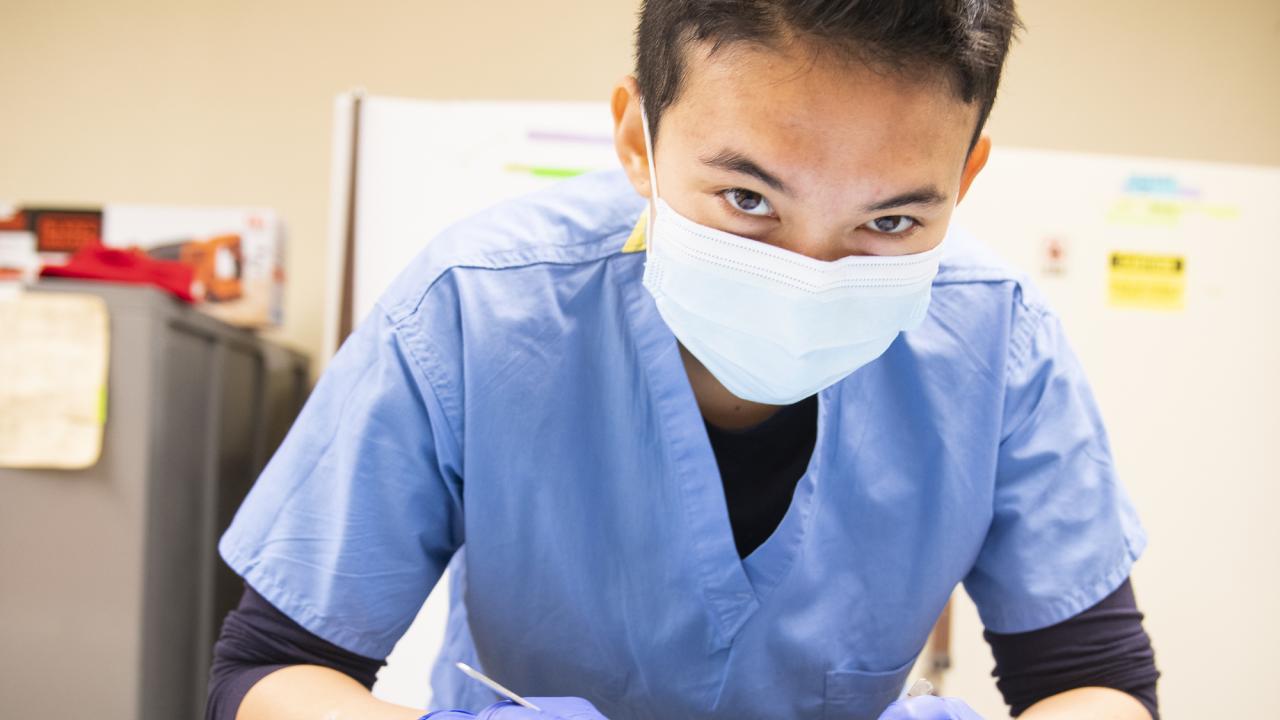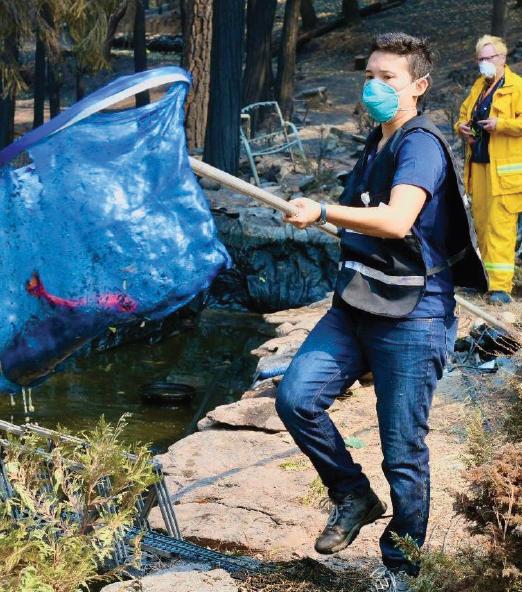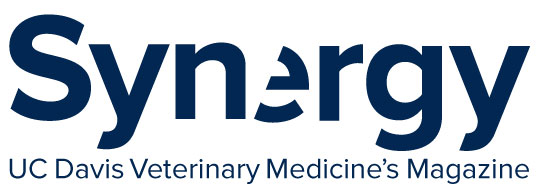
Leader in the Making

Erica Chang, Class of 2022
Erica Chang is fascinated with marine creatures – especially sharks – but being in Davis is the closest they have ever lived to the ocean. The Pittsburgh, Pennsylvania native chose to attend veterinary school at UC Davis in part due to research opportunities that would provide access to those animals.
Since starting at UC Davis, Chang has worked in the Aquatic Animal Health lab under the direction of Dr. Esteban Soto, studying bacterial pathogens of sea otters, fish and sea lions. For the past two years, they have also worked on stranding shark pathology with Dr. Mark Okihiro, a senior fish pathologist with the California Department of Fish and Wildlife, conducting necropsies and other diagnostics for sharks that strand in Northern California.
“Our shark pathology work is constantly on the edge of what is known,” says Chang, “and that's an incredibly exciting place to be – though very humbling and frustrating at times.”
Not one to leave any opportunity unclaimed, Chang is also involved with the Wildlife and Aquatic Animal Medicine Club, the student chapter of the Veterinary Emergency Response Team (SVERT), Veterinary Pathology Club, Orphan Kitten Project, the Coalition for Community Cats trap-neuter-release clinics, and is the co-founder of a student chapter of the World Aquatic Veterinary Medicine Association (WAVMA). With SVERT, they responded to both the Camp Fire and the North Complex Fire, working in the veterinary hospital to treat burned cats and deploying to the large animal shelter to assist with triage and ongoing treatments. During the 2020 fires, they assisted in the successful evacuation of koi and goldfish from ponds in burned areas.
“Fish are frequently overlooked,” says Chang. “So, it was especially rewarding to personally contribute to saving hundreds of fish that might have otherwise been forgotten.”
Chang has received several scholarships – from Bill and Gaile Russ, Zoetis, and WAVMA – as well as travel awards and grants.
Along with fellow students in the school’s Student Diversity Coalition, Chang is passionate about making veterinary medicine accessible and inclusive to all, not just financially, but by fostering work environments that support those who are traditionally under-represented in the profession.
“Veterinary medicine and STEM fields in general are less attuned to some social issues,” says Chang. “We can do better as individuals and a profession to support our colleagues, clients, and communities by educating ourselves and implementing theory into practice when it comes to subjects like gender inclusivity, anti-racism, and the inequity of access to knowledge.”
Chang specifically seeks to lead veterinary medicine in accessible research and knowledge.
“We need to move toward a culture in research and academia of greater collaboration and data sharing,” they say. “I don't want to be a keeper of knowledge, but rather a distributor and applier of that information, driving policy change, new research, and clinical medicine.”
Chang sees a future in aquatic wildlife conservation, ideally blending research and clinical medicine, and working at the intersection between environmental and animal health. A PhD is likely in their future with a goal of contributing a veterinary perspective to interdisciplinary research/conservation teams.
“The biggest problems facing the environment will require many different perspectives and skill sets,” says Chang. “I want to bring veterinary medicine to those teams.”
